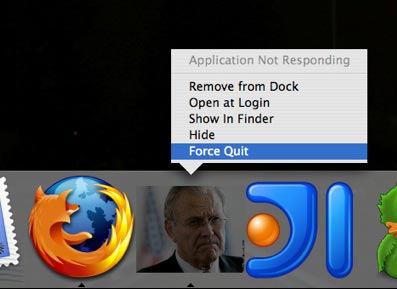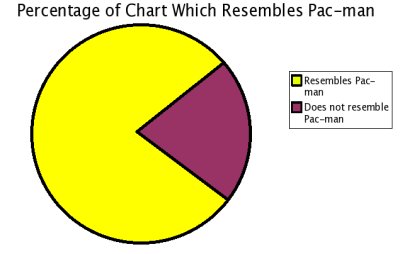Thursday, November 30, 2006
10:19 PM
whew
SHIFT: Why the Zune won't steal Christmas: "
Each week Adam Frucci takes a closer look at the latest gadget buzz in his column, Shift.

Image by Falon Wriede
Oh, Zune. You had so much promise! We were all so excited when we heard that Microsoft was putting all of its resources into taking on the iPod, and we figured that if they could do a pretty decent job jumping headfirst into a new sector with the Xbox, there's no reason they couldn't do it again. It even sounded good when we first heard about some of the features. Wi-Fi in a portable music player? What a great idea! You can download music from anywhere, share songs with your friends, and sync up with your computer without worrying about plugging in cables.
But oh, how we've been let down. What's with the lukewarm reaction? The unimpressive sales? While the Zune might not be considered a failure yet, the fact that it's #61 on the Amazon electronics charts (while iPods hold 6 of the Top 10 spots) is a very telling sign. Let's take a look at what the Zune did wrong, and why it may spell bad news for our friends in Redmond.
Wi-Not?
The biggest thing that Microsoft did wrong with the Zune is its Wi-Fi abilities, or lack thereof. Clearly, Wi-Fi is the only real feature that makes it stand out from other portable music players, but what should have been a selling point just turns out to be a gimmick. The songs you send to a friend can only be listened to three times before they turn into mere links to the Zune's online music store, even if that song was a regular unprotected MP3 file before being sent. You can't do anything else with the Wi-Fi — no downloading new songs, no syncing to your computer, nothing. While hacks or updates in the future might change that, it leaves current owners without much to be excited about. It boils down to this: glorified advertising for the Zune Marketplace disguised as a buzzworthy feature.
And that's not all. Zune's list of features that are disabled or neutered seems longer than the list of features you can actually use. Want to use the Zune as a portable hard drive? Too bad. Want to load it up with songs you've bought from other stores? Sorry, no can do; not even Microsoft's own PlaysForSure works with it. And Windows Media Player? Why would that work with the Zune? Silly consumers.
Don't Box Me In
What Microsoft somehow didn't realize is that customers hate being told what they can't do. Nothing is more irritating than buying something for a specific purpose and then realizing it doesn't do what you thought after you bust open the package. Look at cell phones, for example. Many phones come with Bluetooth functionality, yet it's often scaled down by carriers. Bluetooth can let you do all sorts of things, like sending cameraphone pics directly to your computer, for example. But many carriers would rather you sent those photos through their networks, so they can charge you for usage, and disable this function. On many phones (specifically, virtually any phone sold by Verizon), Bluetooth is merely a way to use a wireless headset — just like Wi-Fi on the Zune is just a way for the marketplace to sell songs.
And now what chance does the Zune have to take some of Apple's market share? Not much. Music bought from the iTunes music store may have restrictive copy protection like the Zune Marketplace's songs, but that business model works for Apple only because the iPod is so ubiquitous. Their owners don't care that their downloads won't work on other players — it's not like they're giving up their iPods. It's too late for the Zune to do the same, so the only way for Microsoft to succeed in this arena would be by taking a different route, which it hasn't done.
If it had, it should look to eMusic as a good example of offering something that Apple doesn't. EMusic is the only online music store that sells unprotected MP3 files that you can play any device, and it's second (albeit a distant second) behind iTunes in online sales. Rather than following that lead, Microsoft went the extreme opposite route, worrying so much about copy protection that it forgot about the most important aspect of gadget design: usability. It's a classic Microsoft blunder of too many corporate interests getting in the way, but we really thought they could do something different with the Zune. Oh well… maybe next time. — A.F.
"
(Via SCI FI Tech Blog.)



 Here's a Barbie doll toy set that comes with a dog that eats biscuits and then defecates. The photo seems to show that there is no difference between the biscuits and the dog crap.
Here's a Barbie doll toy set that comes with a dog that eats biscuits and then defecates. The photo seems to show that there is no difference between the biscuits and the dog crap.  I feel like after showing you this picture there's not that much left for me to say about perhaps the most poorly designed headphones ever. But for you, my friend, I'll try.
I feel like after showing you this picture there's not that much left for me to say about perhaps the most poorly designed headphones ever. But for you, my friend, I'll try.





 Grad student Jake Stern leads an underground band of renegades that uses any means necessary to combat the frightening threats to freedom that permeate the world. They employ technology, alchemy, media hacking and mysticism to fight a modern threat that has its roots in ancient stories destined to recur in the modern age.
Grad student Jake Stern leads an underground band of renegades that uses any means necessary to combat the frightening threats to freedom that permeate the world. They employ technology, alchemy, media hacking and mysticism to fight a modern threat that has its roots in ancient stories destined to recur in the modern age.











